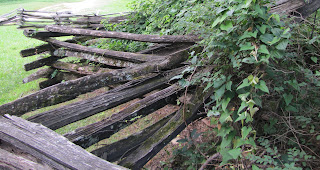
There is within all of us an instinct to go home, the place where we began, the place where we belong.
We hear stories of lost dogs returning home, worse for wear, after traveling for miles and miles, across rivers and busy interstates, after weeks of being lost. Banding hummingbirds has proven that some return to the same feeders in the spring, after they have wintered in South America, hundreds of miles from the plastic red feeder that feels like home to them. Each year, the swallows return to Capistrano. Pacific salmon return to the stream where their life began. The circle of life sometimes ends where it began, and somehow, we find comfort in that.

Some terminal patients, knowing that their days on this earth are few, beg to leave their hospital beds and go home, to their place, to spend their final hours. Wounded soldiers on blood-drenched battlefields write of their desire to just make it home, to be surrounded by family, to be buried in familiar soil. Home, where peace and rest can be found, where problems can be handled.


After World War II, many of my relatives left their homes to move to the industrial cities of the north, seeking jobs that didn't exist in rural Tennessee farming communities. The north presented opportunities for a better life, but those hardworking Tennesseans felt like aliens, strangers in a foreign land. Some prospered and spent their working years there. They never ceased to call Tennessee home. Many returned to live in those rolling hills after retirement, their lives drawn there like iron to a magnet. Things were different when they returned, but it was still home to them, still that place in their hearts where they seemed to belong.

During the time they were in the north, my relatives made every effort to be home at Christmas. Their large families crammed in one car, eating peanut butter sandwiches along the way, they would drive for hours for the privilege of sitting around the dinner table with their kin, people who talked and thought the same way they did. Children loved it, and didn't complain about sleeping on the cold floor on pallets made with quilts. There were never expensive gifts to exchange, but just being together was enough. There was always laughter.
 There is something about Christmas that makes us long
for home. Not the gifts or even the food there, but just being where you know
you are loved in spite of your shortcomings, where its okay if you wear pajamas
all day. We long for it enough to sleep in airports and risk being stranded in
early blizzards. We long for it enough to give up gifts so the money can be used
to buy gas to get to Grandma's house. Even during the hot, growing months of the
year, we are looking forward to Christmas, waiting for the time when we can go
home again.
There is something about Christmas that makes us long
for home. Not the gifts or even the food there, but just being where you know
you are loved in spite of your shortcomings, where its okay if you wear pajamas
all day. We long for it enough to sleep in airports and risk being stranded in
early blizzards. We long for it enough to give up gifts so the money can be used
to buy gas to get to Grandma's house. Even during the hot, growing months of the
year, we are looking forward to Christmas, waiting for the time when we can go
home again.  There is something about Christmas that makes
those in the family of God long for home. Home where we are loved in spite of
our shortcomings, home where we are surrounded by those who talk and think the
same way we do. Home where we are encompassed by the familiar. Home with our
loving Father, where we can rest. Home where each day will be a celebration of
the Lamb. Home where we will never be lonely again.
There is something about Christmas that makes
those in the family of God long for home. Home where we are loved in spite of
our shortcomings, home where we are surrounded by those who talk and think the
same way we do. Home where we are encompassed by the familiar. Home with our
loving Father, where we can rest. Home where each day will be a celebration of
the Lamb. Home where we will never be lonely again.  Home where we
belong.
Home where we
belong.
Consequently, you are no longer foreigners and
aliens, but fellow citizens with God's people and members of God's household,
built on the foundation of the apostles and prophets, with Christ Jesus himself
as the chief cornerstone. In him the whole building is joined together and rises
to become a holy temple in the Lord. And in him you too are being built together
to become a dwelling in which God lives by his Spirit. Ephesians 2: 19-22

Comments
Post a Comment